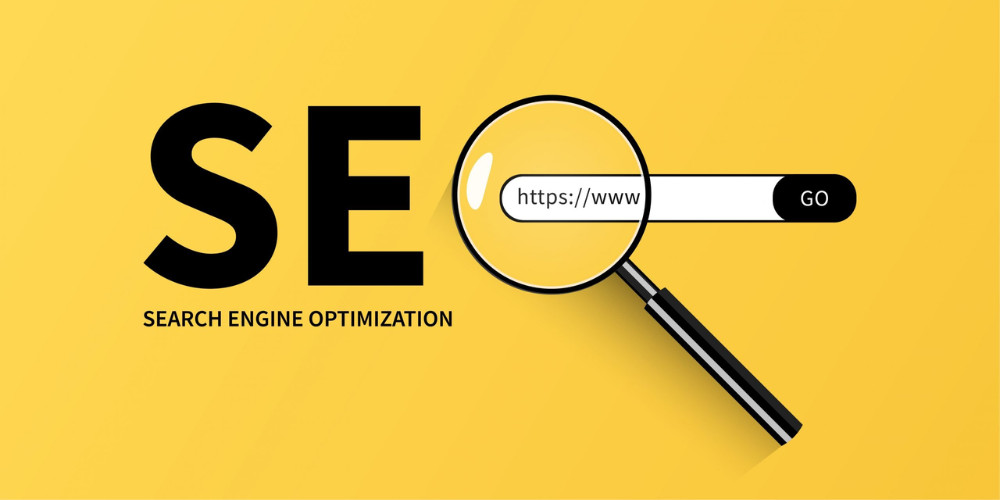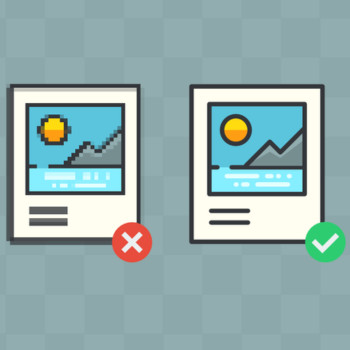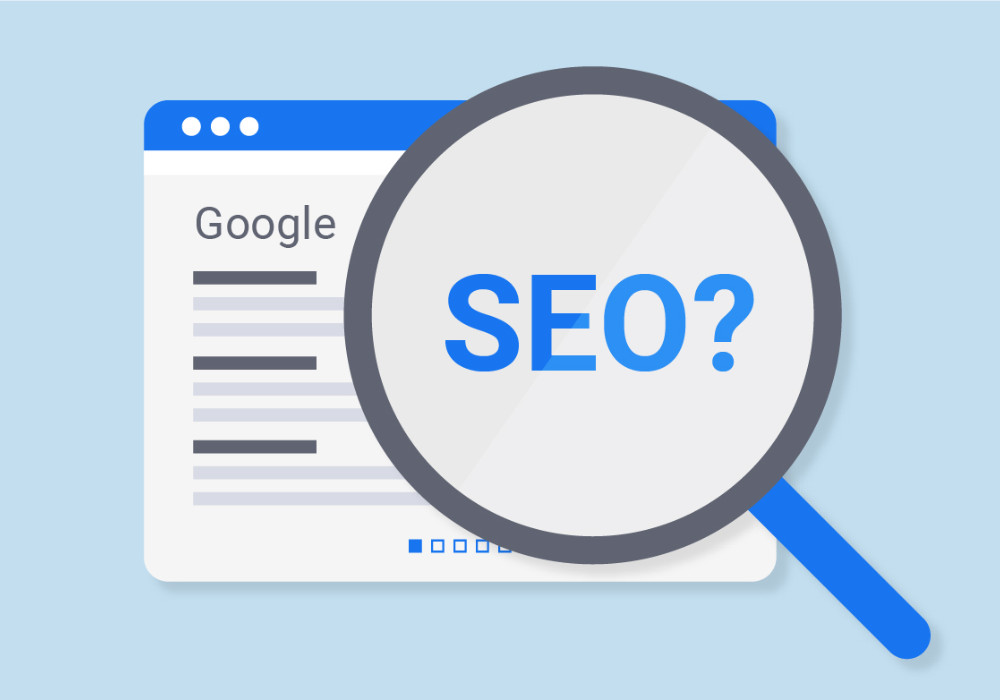SEO:
Search engine optimisation (SEO) is the practise of increasing the quality and quantity of internet traffic from search engines to a website or web page. SEO focuses on unpaid traffic (often known as “natural” or “organic” results) rather than sponsored or direct traffic. Unpaid traffic can come from a variety of sources, including image and video searches, academic and news searches, and industry-specific vertical search engines.
As experts in our field, we know important it is that your website ranks highly in various search engines, such as Google’s and Bing’s results.
Rankly highly on a search engine’s results means your website will have a higher chance of converting it’s users to sales, but how do you do that? How does a search engine even work?
What Does SEO Stand For?
SEO stands for Search Engine Optimisation. SEO is the term used for the practices involved in improving a website’s ranking, to increase chances of being visible through relevant organic searches.
What Is SEO?
Search Engine Optimisation is used to increase three separate factors of your website, they are as follows:
- The Quality Of Traffic – This means ensuring the people who visit your website are genuinely interested in the products or service you offer. For example, if your prospective customer visits your website because they are looking for video games but you sell video creation tools you’re highly likely not to convert that visitor to a sale.
- The Quantity Of Traffic – Once you’ve made sure that the right people are visiting your website and finding you through the SERPS ( Search Engine Page Results) you are able to focus on increasing the traffic to your website.
- Organic Search Results – Organic Search Results can be defined as any traffic you receive from the SERPS that you didn’t have to pay directly for the advertising space for.
SEO is about answering your customers questions before they ask them, it’s about understanding the words they’re searching with and what type of content your ideal customer likes to consume. Knowing your audience’s intent allows you to connect with quality prospective customers online who are searching for a solution to their problem.

How Does SEO Work?
People nowadays use search engines to find answers to almost all of their questions. Whatever you need to know the answer to, all you have to do is put it into trusty old Google and away you go, there’s an endless list of search results right at your fingers, but how exactly does that work?
To deliver you your results, all search engines use a technique known as crawling. Crawling is the process by which search engine crawlers are despatched to visit all pages that have been made known to the engine and retrieve information. This procedure enables the search engine to index the page.
Once the page is on the index that is then delivered into an algorithm that will then match the pages data with the searches people do on the internet. There are various other ranking factors that search engines like Google use to determine your page ranking, they are as follows.
- Off Page – These metrics are measured by Google and mainly involve the use of backlinks on the webpage. (We’ll delve further into backlinks in part 4 in this article)
- On Page – On page ranking is primarily related to the amount of keywords and information queries can be found on the webpage.
- Technical – The final measurement that determines a pages ranking is mainly concerned with factors that cover the performance of the entire site as a whole and doesn’t focus on individual pages as much.
So that pretty much accounts for the ‘Search Engine’ part of SEO, but what about the optimisation? In fact, website optimisation is mostly about content. Articles, just like this one, are one of the main focus’ here.
The quality content that is being uploaded to your website the higher the webpage is likely to rank on a search engines results. This content should be designed to hammer home what your business is about to your prospective customers while providing the search engines with all keywords, title tags, meta descriptions and internal links they need to accurately understand what your business is and what users who visit the site are looking for.
These are the main facets of SEO, however there are many other factors that will come into play if you wish to be successful at SEO, they are as follows.
- Strategies
- Link Building
- KeyWord Research
- Web Design
- Social Network Integration
- FeedBack Processing
Why Is SEO Important?
SEO is the process through which search engines like Google assess which websites deserve to rank highly for specific phrases or searches. Without the strategies utilised by current SEO, it would be far too easy to manipulate the system with bots, which would almost certainly be exploited by larger corporations with unlimited resources. However, contemporary SEO provides for a more level playing field, which decreases the possibility of people manipulating the results.
As such, every site deserves it’s current rating. Working hard on your content and ensuring that your website appeals to its visitors instead will lead to a higher score on the search engine rankings. Generally speaking users view the business’ that at the top of the search results to be the more credible source, than ones who do not rank as highly on page rankings, thus SEO is highly important if you want people to visit your website.
SEO enables you to push your websites traffic, while ensuring you don’t waste budget on buying expensive advertising space and is considered the most cost effective method of increasing a website’s traffic. In the next part of this article we’re going to take a look at SEO Writing and How To SEO Your Website.
What Is SEO Writing?
SEO writing is defined by a blog post that is optimised with the implementation of keywords and phrases. SEO writers are used to increase the site’s organic results and it’s position on the SERP rankings. What your SEO writers are writing about will depend on the service you supply.
For instance if you have a website that supplies gardening supplies, you’d likely find success having articles written about ‘How to Grow’ a certain plant or a top 5 list that highlights some of the products you have in your store. It’s not as simple as uploading as many articles as you can and filling them with as many keywords as possible.
The key, the undivided truth is that your content matters. Your content needs to be useful, it needs to answer the questions that your potential customers will have. As SEO writers it’s our job to look at a set of keywords and from that deduct the phrases and questions that may need to be answered around them. There are three main types of searches that people do, these are as follows.
- Navigational – The user is looking for a particular website.
- Informational – With this type of search users are looking for information on a specific topic.
- Transactional – Users are looking to purchase a product or service.

What are Keywords?
When people search for phrases on google, bing or yahoo, the way in which the engine will present suggestions is based on keywords and how well SEO has been undertaken.
If you have strong SEO in place, and a high domain authority, with a healthy backlink profile – your google ranking will be higher than your competitors that are not doing these things.
This means you can rank higher and take more of the market share from the 91% of people who click results on the first page of Google.
If your SEO is weak then you will rank lower than your competitors and your business may not be found as often, if its found at all.
The Different Types of Keywords
There are two different types of keywords which are used in SEO. They are Short Tail Keywords and Long Tail Keywords. Both are very effective in terms of SEO, however both can attract different types of searchers. We will touch upon ways in which to source key words, and even the applications you can use, however for now let’s look at the difference between Long and Short Tail Keywords.
Short Tail Keywords
A Short Tail Keyword is a search phrase made up of 1 to 3 words at a time. They can be very effective when trying to drive high volumes of visitors to your website due to their open nature. However, with this also comes the issue of how frequently they are used.
A frequently used search term can mean it is harder to be ranked higher on search engines such as bing or google. This is due to the volume of pages that are using them. However persevere, and spending time working on it will make your content rank higher.
Long Tail Keywords
A Long Tail Keyword is a phrase that is more than 3 words long. As they are longer it means they can be more descriptive, so targeting your audience is easier. An interesting fact is that over 70% of the internet’s searches are made up of Long Tail Keywords.
Unlike Short Tail, a Long Tail phrase will not generate as much traffic. This is because the phrases used narrow down the actual search. Now this may not be great to some businesses, however a more specific search should generate a greater chance of converting those searching for your products or services.

How To Find Keywords For SEO?
Keyword research is required before you can optimise your website or begin creating content. The research enables SEO writers and marketers to examine specific search phrases placed into search engines.
Keyword research can reveal prospective questions your yet-undiscovered clients have, as well as the popularity of these searches. Because term ranks might alter or be updated over time, keyword research should be an ongoing event in your internet marketing tactics.
When it comes to wanting keywords you should use for business then I’m sure you can already think of a few and there is a great jumping off point for your keyword research. From there you’ll be able to use a keyword research tool for some similar search words, average monthly amount of searches and some other information you can use to deduct whether the phrase is worth chasing.
Later on in this article we’ll take a look at some keyword research tools and discover how they can help you optimise your SEO.
Are you wanting to get the most out of your website’s SEO? Then why not get in touch with the award winning team at Lead Genera. We offer quality and results that will have a measurable impact within days, not months!
How To SEO Your Website
One the first things you need to do is determine whether or not your website is actually on Google and other search others. Google is by far the largest and most trusted search engine on the internet today, there’re around 227 million users use google every hour and in one day they can rack up 5.4 billion searches. To sum this up, you need to make sure your site is recognised by Google.
Finding out if your website is in the Google directory is easy as pie and can be achieved for searching for your website’s name or URL in Google. The likelihood will be that your website will be on Google already, as their crawler bots are roaming the web 24/7 looking for new pages to index. If you’re not finding that your website isn’t appearing on Google it’s likely for one of the following reasons.
- Site Isn’t Well Connected.
- Site is Too New.
- The Site is Poorly Designed and Google Cannot Crawl It’s Content Effectively.
- Google IS Blocked from Crawling the Site.
- Google Encountered Errors On Your Site.
One of the best ways for Google to find your website when crawling for new sites is to include a sitemap for your site. A sitemap allows Google and other search engines about new or changed pages on your website, in addition to this google also finds other links pointing to your website as validation. Once you have your website recognised by the overlords at Google, you’ll be able to start creating content to increase your traffic.
Creating the content will take time, especially if you’re not outsourcing that job to more experienced SEO writers. Of course there are other sorts of content you can create such as videos or podcasts could also be considered to harness the traffic from sites like YouTube. videos and the like won’t necessarily be everyone’s ‘cup of tea’ to create but could be well suited for a small business owner running a popular culture shop or the like. Before you pull out the camera or start to write your first blog post we thought it would be A great idea to highlight some of the main factors search engines like google look for before serving you a website.
- Relevance – One of the most key things a search engine tries to do is make it’s results relevant to the searchers query.
- Quality – Publishing regular helpful articles or types of media is a great start.
- Experience – Having an easily navigable website will be a good leg up as far as Google liking your site goes and whether your prospective clients will want to use your site at all.
- Compatibility – The days of going to the computer room to boot up a massive PC to check your email is over. Many people surf the web on their mobile phone, you’ll need to ensure that your site is compatible with this happening.
- Internal Links – Adding internal links, such as the table of contents at the start of this article, helps your users navigate your site with ease and can lead to higher ‘trust signals’ on Google.
- Site Speed – Having a sluggish website isn’t what you want, isn’t what Google wants and most of all it isn’t what your customers want.
- Title Tags and Meta Descriptions – While having a meta description won’t help your chances of Google ranking your site on the SERP, They definitely do increase the chances of a potential user, clicking on your website. A meta description works in conjunction to the headline and should be made relevant to the content itself. Title tags are a more concise way of telling the search engine and user both exactly what your content is and usually contains your targeted keywords.
5 SEO Tips For Beginners

As we cruise into the fourth part of this article, the team here at Lead Genera thought it would be a great idea to put together a list of tips for any budding SEO beginners out there!
Keywords are 90% of the battle
As we’ve already covered, keywords are the foundation of SEO, they help you form your content and tell you what your prospective client base might be searching for. There’s a couple of simple ways you can start to build your own keywords to start your content strategies, they are as follows;
- Brainstorming Your Ideas– In our experience brainstorming really only works well when you have a group of people all working on the same problem. If you’re by yourself you can try to write down the service or product you supply and any words relating to that. Then also consider what area your intended client base might be in. This will be a great start to building a list of basic keyword ideas.
- Keyword Research Tool – We’ll be going into this subject in much greater depth in the final part of this article, but keyword research tools can be used to enhance your search and help build your content.
Create and Circulate Authentic Content

Now you’ll likely have a long list of potential keywords, queries and ideas for your content for your blog posts. The best way to structure them is to group some titles together that make sense and then build your article from that. Content creation is a completely different area of SEO, writing blog posts will take time to master. Fortunately Google responds well to regular helpful content being published on a website.
Be Social

You may have noticed that when you’re searching for a specific brand online oftentimes one of the top links for that brand will be a social media account. Google values all profiles or pages on the internet, so it will pay off in the long run to create social media profiles, if you don’t already have one. Adding social media accounts means that google will be able to serve your prospective clients with more web pages when they search for your business. Also setting up an email list is a great way to build up your contacts and a fantastic way to start conversations with other marketing managers, this will help when starting to build your own backlinks.
Optimise Your Images

Whether you’re uploading images to your social media account or straight to your website adding tags to your pictures description, helps those who are visually impaired and allows google to more accurately index your website. In addition to this many social media websites actually favour posts with images in over ones that are just large bodies of text.
Use Google’s Analytics Tools

Google Analytics is a great free tool that tracks the traffic coming to your website. Another Tool offered by Google designed to allow users to get the most out of their website’s traffic is called the ‘Search Console’ and it allows you to optimise your site’s performance. This is another free service.
What Are Backlinks In SEO?
A backlink is when one website links to another; this is also known as ‘inbound links’ or ‘incoming links’. In SEO, a backlink is a vote of confidence from one site to another, and it serves as a signal to Google and other search engines that actual people trust your material.
The more websites that give valuable connections to your website, the better your chances of ranking on the SERPS. Backlinks are gained and are an important part of off-site SEO. Off-site SEO refers to all actions conducted outside of the website that have a direct impact on the SERPS ranking of the website.
Ideally you’re looking for backlinks for trusted sites with a high authority and not sites that spam content, this action is unfavourable with Google and other search engines.
Backlinks are the foundation of Google’s original algorithm so, using links in a search engine is nothing new.
Even though it’s essentially the oldest method for Google to track and index websites it’s still used today and is one of the main contributing factors to a website’s authority. Building backlinks can be time consuming and a fair bit more complicated than some other aspects of SEO work. However, when it comes to building your website’s authority, having backlinks from trustworthy sites is a great advantage.
What is Local SEO?
Local SEO is optimizing your local online presence to attract more business from relevant local searches. When you search something like ‘computer shops’ on Google the first results they serve are called ‘Snack Pack Results’.
The snack pack is defined as the boxed area that appears at the top of Google’s first page of search results. The snack pack contains the top three businesses at the top, this list can be expanded.
Around 33% of clicks on Google go to the local ‘snack pack’ results while 40% of traffic can be attributed to organic views. So, it pays off to be featured in both of these as they both draw traffic from people with different surfing habits.
If your business is situated in an area that may not garner enough actual searches for any information to be generated on them, it advisable to widen your location modifier to a larger nearby city, as that will likely garner your website more traffic.
The bottom line is if you’re running a business that focuses on the local area for the majority of it’s trade then optimizing your content for local SEO will highly benefit your website’s traffic.
If you need Local SEO help from the professionals, get in contact with the award winning team here at Lead Genera to find out how we can help your business build its online presence.
What Are SEO Tools?
SEO tools are used to assist website owners in ranking higher in search engine results. SEO tools are used to analyze content on the internet for keywords, backlinks and other measurable data. Now, we’re going to take a look at the most common tasks SEO experts use tools for:
- Keywords – Researching keywords in more depth is one of the major advantages of using SEO tools to boost your website’s traffic. You’ll be able to see what search terms and questions might be related to your search topic and which terms are being searched for the most. This will enable you to optimise your website and content.
- Content – Unfortunately there isn’t a SEO tool that will write articles for you yet, but what the SEO tools will do is help guide your content and shape your articles.
- Backlinks – As we explained earlier in this article, backlinks are an important part of the ‘behind the scenes’ tasks related to SEO. Some SEO tools allow you to track and edit backlinks as well as create your own.
- Ranking – Another aspect that many SEO tools are designed to keep track of is the websites ranking. You can also check out your competition to see what they’re doing and what types of content is working for them.
- Traffic – This might be a rather more obvious task related to SEO but, measuring your traffic is certainly something you will find yourself doing, lots.
- Social Media – Some SEO tools allow you to monitor and analyze data coming from social media platforms. They can inform you of what blog posts you have that have been shared on social media platforms as well as give you a heads up on identifying new trends, by regularly searching for trending keywords.

How To Boost SEO
Over the past 4 articles we’ve highlighted many tactics for boosting and creating search engine optimised content for your website such as including keyword rich informative blog posts or ensuring your website loads quickly and on mobile devices. Now We’re going to take a look a bit deeper at some other ways you can Boost your SEO.
- Header Tags – As well as adding images to your blog posts to keep the reading scrolling, breaking up the text is another great way to keep the flow of the article moving. It doesn’t just break things up for the reader, but the writer too and it guides them through the process of writing the article.
- Outbound Links – Making links to other sites is a great way to increase your traffic, but you need to ensure that you’re linking to credible sources, especially when quoting any data related topics.
- Explainer Video – Having a video on your page that explains your business or product is a great idea. By uploading the video to YouTube and embedding it on your website, you ensure that you’ll garner views from the video, while enjoying the benefits of having your business indexed on YouTube’s search engines.
- A Professional Website – Although, having header tags, writing regular content and the like may well drive some traffic to your website, the bottom line is that you need to have a professional website that has an intuitive interface that your users will want to spend time on.











